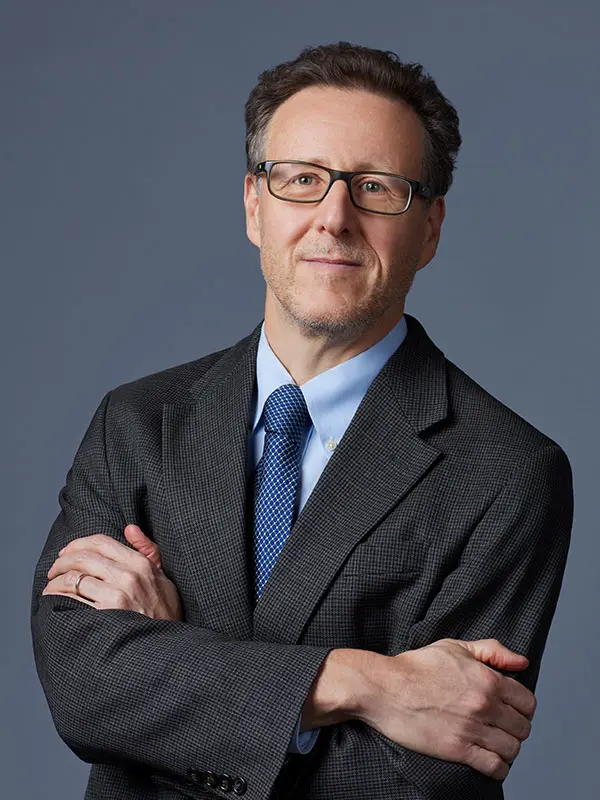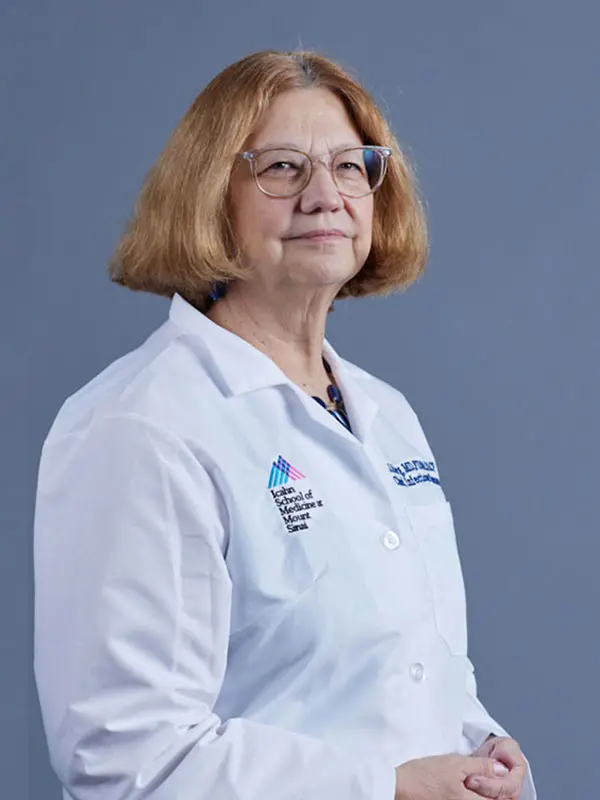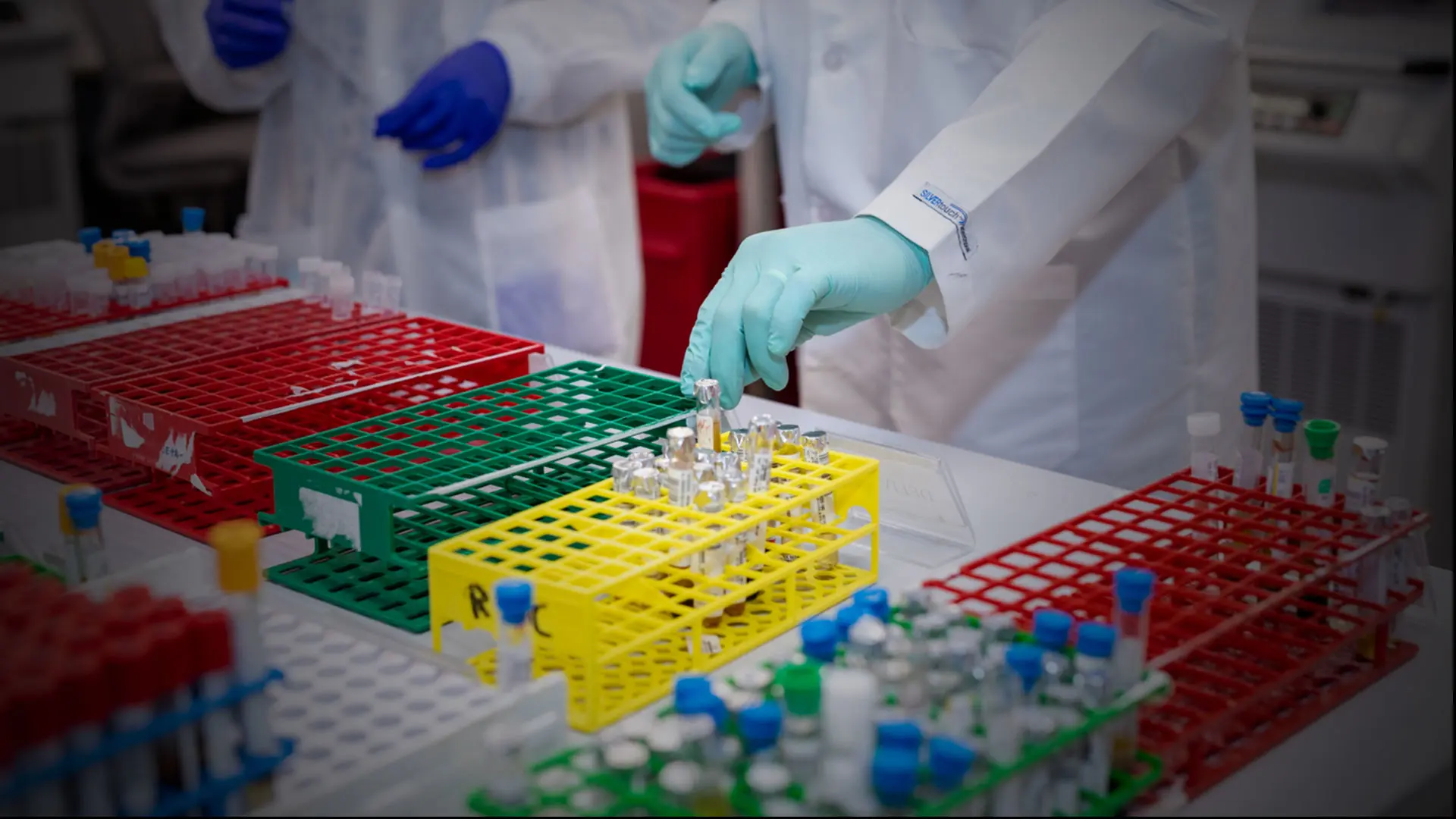From emergency room to lab bench, Mount Sinai’s Department of Medicine mobilized an army of professionals and programs in response to COVID-19 that continues to set important new standards and protocols for the entire field in dealing with a pandemic-size health crisis. In addition to its prominent national role in investigating critical therapeutic agents, the Department was the first in the country to establish a Center for Post-COVID Care. It broke additional ground by leading the effort to create an institutional Post-COVID Registry to study the long-term sequelae of infection and to ensure researchers easy access to data for their investigative work.
“We’ve always evolved quickly to clear new clinical hurdles for our patients, but the pandemic tested our capabilities in ways no one could have imagined,” says Zijian Chen, MD, Assistant Professor of Medicine (Endocrinology, Diabetes, and Bone Disease) at the Icahn School of Medicine at Mount Sinai, and Medical Director of the Center for Post-COVID Care. “At the core of our response was being able to evaluate a wide range of symptoms from COVID-19, and get patients back to normal as soon as possible by standardizing care and building protocols that worked. We then shared those practices and knowledge with other health systems.”
The Center for Post-COVID Care was created in the early days of the pandemic when it became clear to Mount Sinai that many patients were experiencing debilitating effects of SARS-CoV-2 months after their initial infection. To help these still-vulnerable individuals, the Center began providing advanced care through tools like high-resolution CT imaging and pulmonary function testing. Just as importantly, it built bridges with a host of medical specialties as part of an integrated program. Neurologists, for example, were enlisted to address cognitive dysfunctions, pulmonologists to help restore respiratory function and monitor lung performance and oxygen needs of patients from their homes, and rehabilitation specialists to provide long-term strengthening and conditioning programs to patients still suffering from fatigue or unable to resume their normal routines.
"Providing the best possible care to our patients now and in the future would hinge on our ability to gather comprehensive data."
Juan Wisnivesky, MD, DrPH
Another vital part of the Department of Medicine’s COVID-19 institutional contribution has been the Post-COVID Registry, created as a large cohort study to collect data from patients treated for the virus across Mount Sinai. More than 1,100 participants are currently in the registry, self-reporting information on comorbidities and medications as well as socio-economic backgrounds and behavioral and mental health histories. Researchers and clinicians have further obtained baseline measures of pulmonary symptoms, and physical indicators such as biometric, spirometry, EKG, bloodwork, and antibody titers for SARS-CoV-2.
“This trove of data is important not just for our clinical trials,” explains Juan Wisnivesky, MD, DrPH, Professor of Medicine (General Internal Medicine), who helped create the registry. “It’s allowing us to examine the potential mechanisms of COVID-19 and their long-term consequences. We understood at the very outset that we were facing a major health crisis, and that providing the best possible care to our patients now and in the future would hinge on our ability to gather comprehensive data.”
"We had people working throughout the night to get regulatory approval to give investigative agents to desperately sick patients on an emergency basis."
Judith Aberg, MD
No team at Mount Sinai has done more to advance the field’s knowledge of COVID-19 over the past year than the one devoted to clinical trials. This diverse group grew from about 20 people at the outset of the pandemic to more than 150 doctors, nurses, lab specialists, pharmacists, and clinical research coordinators from nearly every division within the Department of Medicine and elsewhere across Mount Sinai.
“We had people working throughout the night to get regulatory approval to give investigative agents to desperately sick patients on an emergency basis,” recalls Judith Aberg, MD, Chief of Infectious Diseases and the Dr. George Baehr Professor of Clinical Medicine at Icahn Mount Sinai. “The effort that went on here was simply amazing.”
Among the therapeutics Mount Sinai played a leading role in investigating were the antiviral remdesivir and convalescent plasma for transfusion from patients who had recovered from COVID-19. “All the clinical trials we participated in led to national guidelines, either to use or not to use,” says Dr. Aberg. Indeed, early studies of the IL-6 inhibitor sarilumab were disappointing, though they paved the way for further research demonstrating the anti-inflammatory benefit of the drug when paired with a steroid like dexamethasone.
“Not everything we did was a success,” concedes Dr. Aberg. “But we quickly learned that even negative studies were important when dealing with an unknown and unpredictable virus like COVID-19. We’re definitely better prepared today thanks to our experience.”
Featured

Zijian Chen, MD
Medical Director, Center for Post-COVID Care

Juan Wisnivesky. MD, DrPH
Drs. Richard and Mortimer Bader Professor of Medicine; Chief of the Division of General Internal Medicine

Judith Aberg, MD
Dr. George Baehr Professor of Clinical Medicine; Chief, Division of Infectious Diseases
